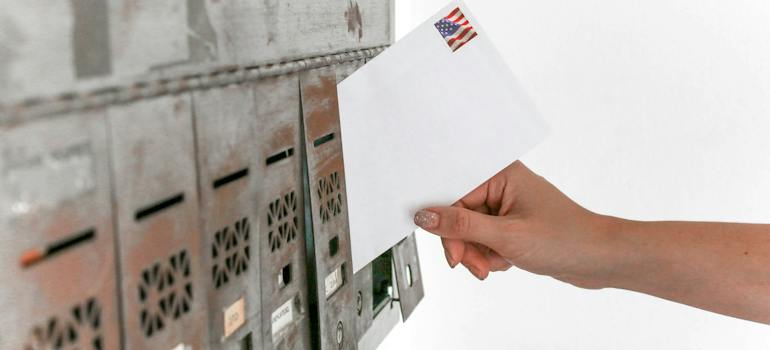Embarking on a Permanent Change of Station (PCS) move is akin to navigating uncharted waters. For military families, it’s not just a relocation but a comprehensive life transition. Due to its nature, it is often laden with complexities and uncertainties. The challenges range from the tangible – managing logistics and finances, to the emotional – uprooting from a familiar environment and adapting to new communities. In essence, this type of move is a multifaceted journey that demands meticulous planning, resilience, and adaptability. So, there are things you need to know before a PCS move to make this process less stressful.
Learn about your entitlements and benefits
Before embarking on a PCS move, it’s important to fully understand the entitlements and benefits available to you. Military moves come with various allowances, including travel, dislocation, and temporary lodging expenses. These are designed to ease the financial burden of a PCS move. To ensure you’re making the most of these benefits, familiarize yourself with the Joint Travel Regulations (JTR) and consult with your installation’s transportation office. They can guide entitlements specific to your situation. For instance, if you opt for a Personally Procured Move (PPM), you might be reimbursed for expenses incurred from hiring a moving service, like A2B Moving and Storage, or similar companies. Additionally, seek advice on how to claim these entitlements effectively. There are often strict timelines and procedures to follow.
Handle the legal and administrative tasks properly
Dealing with legal and administrative tasks during a PCS move can be daunting but is essential for a seamless transition. Start by updating all your legal documents to reflect your new location. This includes wills, power of attorney, and property-related paperwork if you own or rent your current home. Also, familiarize yourself with the laws in your new state, as they can differ significantly. On the administrative side, you should keep a detailed record of all moving expenses for reimbursement purposes and to update your address with various institutions. Here’s a reminder of what you should do when it comes to these matters:
- Update address with financial institutions.
- Register with the Postal Service.
- Keep records of moving expenses.
- Update voter registration.

Choosing the right moving option
When it comes to moving, you have two primary options: a government-managed move or a personally procured move (PPM). In a government-managed move, the military personnel specialized in moving are assigned to handle your belongings. These people are experienced in dealing with military relocations, ensuring a smoother transition with less personal involvement in the packing and transporting process. On the other hand, a PPM, also known as a “Do-It-Yourself” (DITY) move, allows you more control. You handle the packing and transportation, and the government reimburses you on the basis of the weight of your goods. This option can be more financially rewarding if managed efficiently. You can also decide to hire military movers of your choice in the form of a non-governmental company that specializes in this kind of endeavor.
Each choice has its benefits and challenges. Consider factors like your family’s needs, the distance of the move, and your comfort with handling logistics when making your decision. And keep in mind that timely planning and organization are key, regardless of which option you choose.

Manage your finances during the move
A PCS move can have significant financial implications. So, it is necessary to do some effective budgeting to avoid unforeseen expenses. Start by creating a detailed budget that includes all potential costs. It should include packing supplies, temporary lodging, and travel expenses. If you choose a personally procured move (PPM), factor in the costs of hiring moving services. For example, getting quotes from moving companies in Falls Church VA, or your specific locality will give you a clearer idea of the expenses involved.
Additionally, the military may offer advance pay for a PCS move, which can help cover immediate costs. This advance is essentially an interest-free loan that can be used for moving expenses and is repayable over a year. It’s also wise to set aside a contingency fund for unexpected costs. Effective financial planning can significantly reduce the stress associated with PCS moves, allowing you to focus on settling into your new home.
Prepare for housing changes
Whether you’re moving to on-base housing or finding a place off-base, start your search early. If your new home is not immediately available or if you’re waiting for family to join you, consider temporary housing options. In such cases, storage facilities can be invaluable. For instance, utilizing Alexandria VA storage, or the one near your new location, offers a safe place to keep your belongings until you are fully settled. When dealing with your current home, decide whether to sell, rent it out, or keep it. Each choice has financial implications and requires careful consideration, especially in terms of mortgages or rental agreements.
Arrange healthcare and education
One of the things you need to know before a PCS move is that it is important to ensure continuity in medical care and minimal disruption in your children’s education. You should first schedule final appointments with current healthcare providers and discuss the move. Also, inform your children’s schools and begin obtaining their academic records. Researching new schools and healthcare facilities should be done well in advance.
Here’s a healthcare and education checklist of things you need to do before the move:
- Secure medical records.
- Find new providers.
- Update insurance details.
- Notify current school.
- Request academic records.
- Research and enroll in new schools.
Explore your new hometown
Once you arrive, one of your initial tasks will be to make yourself comfortable in your new hometown. Begin by researching the base and surrounding area where you’ll be stationed. Look into local amenities, services, and facilities that will be part of your daily life. This includes shopping centers, recreational facilities, and essential services. Also, familiarize yourself with the local culture and customs, which can vary significantly from place to place. If you’re moving to an area with a different climate, prepare accordingly with suitable clothing and gear.
Additionally, consider the social aspects of your move. Connect with social groups or community centers on or near your base. Many military bases have support systems and organizations designed to help families adjust. Participating in local events and activities can be a great way to meet new people and start feeling at home in your new surroundings. Understanding and embracing your new environment will greatly enhance your PCS experience.

Learning about the things you need to know before a PCS move will make things a lot easier
A PCS move is a formidable task, marked by a labyrinth of logistical, financial, and emotional challenges. It’s a journey that tests the resilience of military families, pushing them to adapt to new environments, cultures, and routines. However, with the right preparation and understanding of the critical elements involved, it can also be an opportunity for growth, new experiences, and stronger family bonds. So, to make this a positive experience, explore these 7 things you need to know before a PCS move and embrace this new beginning with a smile.


